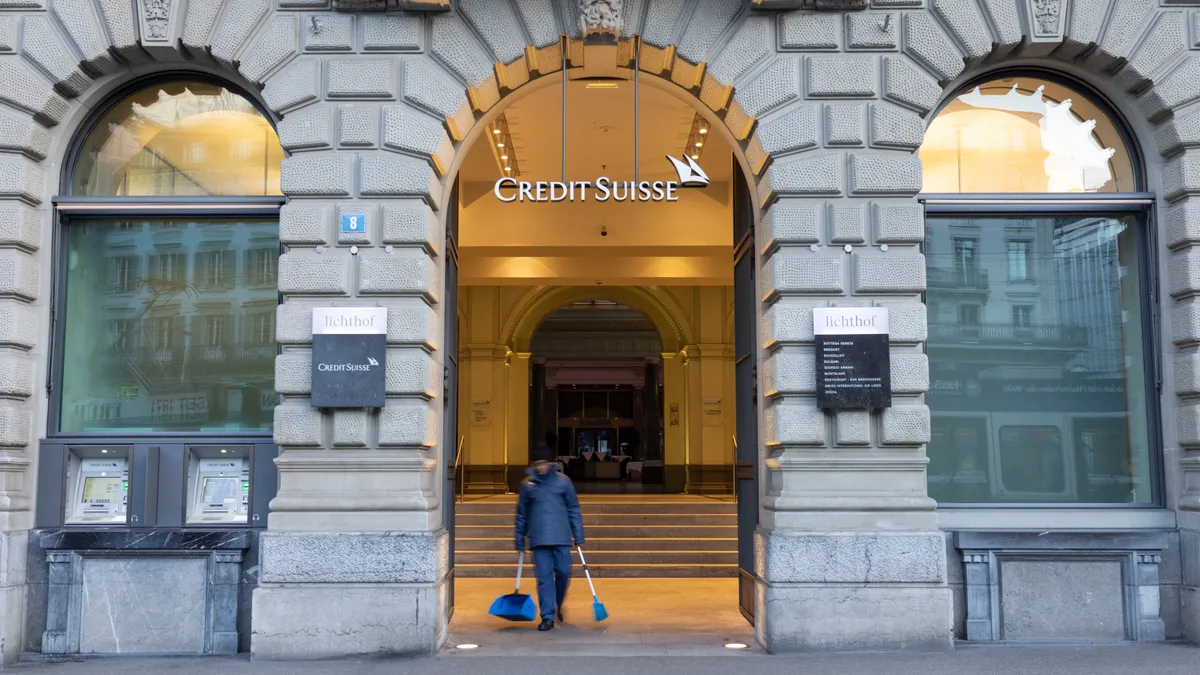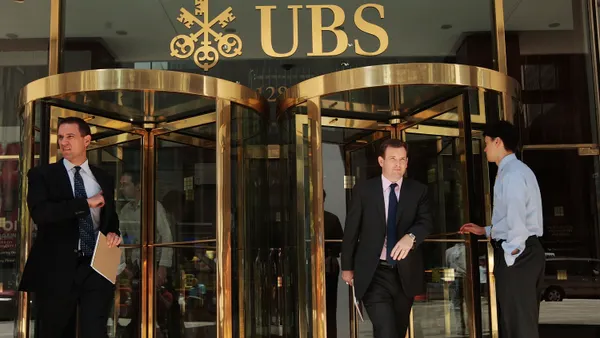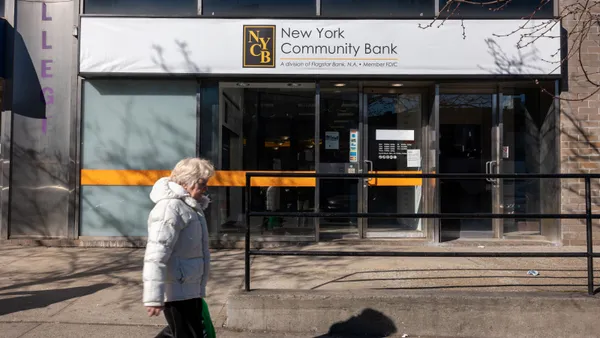Credit Suisse Chair Axel Lehmann offered a mea culpa Tuesday at the bank’s final annual shareholder meeting as an independent entity.
“I apologize that we were no longer able to stem the loss of trust that had accumulated over the years, and for disappointing you,” Lehmann said, according to the Financial Times. “The bitterness, anger and shock of all those who are disappointed, overwhelmed and affected by the developments of the past few weeks is palpable.”
Protesters gathered outside the hockey arena where the meeting was held, and some erected a capsized boat to illustrate the bank's demise, Reuters reported. The meeting drew roughly 1,750 shareholders — some of whom attended with statements to make.
“I wore my red tie today to represent the fact that I and plenty of others today are seeing red,” a shareholder told the board and the audience, according to The Wall Street Journal.
In his remarks Tuesday, Credit Suisse CEO Ulrich Körner sought to empathize.
“What has happened over the past few weeks will continue to affect me personally and many others for a long time to come,” Körner said, according to CNBC. “We ran out of time.”
Lehmann, too, said he believed the bank could survive until roughly a week before the Swiss government demanded a rescue by Credit Suisse’s chief rival, UBS.
“We wanted to put all our energy and our efforts into turning the situation around and putting the bank back on track,” Lehmann said, according to Bloomberg. “It pains me that we didn’t have the time to do so, and that in that fateful week in March our plans were disrupted.”
The $3.25 billion “shotgun merger” between Switzerland’s two largest banks has drawn its share of pushback. The government invoked emergency measures to approve the deal without sign-off from shareholders of either bank.
That leaves some Credit Suisse investors with an air of unfinished business.
Vincent Kaufmann, CEO of Credit Suisse investor Ethos Foundation, told CNBC his company may try “to retrieve some of the viable pay that was granted for former management, who may have failed in their duties to protect shareholders' interests.”
"We're still looking for possibilities — it's quite difficult with the Swiss company law to prove the damage,” he said. “Still we need to be sure that they gave the whole truth to investors and to the market.”
Lehmann, for his part Tuesday, said Credit Suisse “failed to stem the impact of legacy scandals, and counter negative headlines with positive facts.”
At least one investor, Norges Bank Investment Management, urged shareholders to vote against several members of Credit Suisse’s board, including Lehmann.
Five board members stepped down before the vote. Lehmann, however, was re-elected chair, with 55.67% approval, according to Reuters, and the bank’s six other board members were narrowly re-elected Tuesday.
Ethos bemoaned the "greed and incompetence of [Credit Suisse’s] managers" along with pay that reached "unimaginable heights.”
Other investors expressed their dissatisfaction with the Swiss government’s handling of the deal.
“[Finance Minister Karin] Keller-Sutter was completely out of her depth,” shareholder Guido Röthlisberger told Bloomberg. “I think it was possible to do this deal without an emergency decree … and I feel I have been cheated.”
Körner and Lehmann on Tuesday both appeared to defend the urgency of the Swiss government’s actions.
“The collapse of Credit Suisse would have been catastrophic not just for Switzerland but for the global economy,” Körner said. “We no longer had a choice.”
"Until the end, we fought hard to find a solution, but ultimately there were only two options: deal or bankruptcy," Lehmann added. "The merger had to go through."
Two public meetings Wednesday may add clarity to the situation. UBS is set to hold its own shareholder meeting, and Swiss regulator Finma is set to hold a press conference on the same day.
Ahead of Tuesday’s meeting, Credit Suisse withdrew some proposals from its agenda. It canceled a vote on a special bonus linked to the transformation plan the bank rolled out in October. The bank also canceled a vote that would have approved a dividend of about $0.05 a share.















